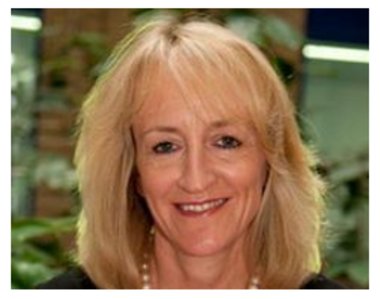In conversation with our Academic Surgery
Hear from Prof Janice Rymer on the importance of bringing surgeons and academics together across King’s Health Partners to discuss innovative ideas.
 Prof Janice Rymer [pictured right] is a consultant gynaecologist at Guy’s and St Thomas’ NHS Foundation Trust and Professor of obstetrics and gynaecology and the Dean of Student Affairs at King’s College London. We took five minutes to learn more about her work and role in King’s Health Partners Academic Surgery – our new programme that brings surgeons together across our partnership to collaborate in surgical science and improve education for our future surgical trainees.
Prof Janice Rymer [pictured right] is a consultant gynaecologist at Guy’s and St Thomas’ NHS Foundation Trust and Professor of obstetrics and gynaecology and the Dean of Student Affairs at King’s College London. We took five minutes to learn more about her work and role in King’s Health Partners Academic Surgery – our new programme that brings surgeons together across our partnership to collaborate in surgical science and improve education for our future surgical trainees.
What is your current role and what can you tell us about your career?
I am a consultant gynaecologist at Guy’s and St Thomas’ NHS Foundation Trust and Professor of obstetrics and gynaecology and Dean of Student Affairs at King’s College London. I am also the National Specialty Advisor for NHS England and Improvement for gynaecology.
I trained in New Zealand and the UK. I have two areas of surgical focus. One is minimal access surgery, meaning surgery with one or more small incisions, instead of large ones. The other is endometriosis, a condition where tissue similar to the lining of the womb starts to grow in other places, such as the ovaries, and can spread into other organs. This area of work involves working closely with the colorectal and urology team.
Can you tell us more about your involvement with our Academic Surgery programme?
The King's Health Partners Academic Surgery aims to facilitate outstanding surgical science collaborations, support hybrid surgical and implementation trials, improve education for the next generation of surgical trainees and inspire students aspiring to surgical careers. I am keen to ensure that gynaecology is included within the Academic Surgery programme and that the programme engages with the medical school and our trainees. At one of the first workshops for the Academic Surgery programme that took place in November last year, I spoke about the value of including more surgery in the King’s College London curriculum. It is so important to inspire young medics to pursue a career in surgery and exposure to our role-model surgeons across King’s Health Partners will be vital for students in choosing their career paths.
What do you think the opportunities and benefits are of bringing together clinicians and academics in the surgical field?
Evidence based surgery, meaning integrating the best research evidence with clinical expertise, is the way forward. At King’s Health Partners we have huge potential to bring together excellent surgeons and academics and to discuss innovative ideas through the Academic Surgery programme. Having a monthly surgical meeting, with each session shining a spotlight on a surgical specialty, gives us the perfect opportunity to understand our different areas and discuss innovative ideas that can be shared across specialties. Collaboration can be of enormous benefit to our patients.
How has your field changed over the past few years, and more recently, as a result of COVID-19?
Hysterectomy rates have decreased due to more options for less invasive treatments. Examples of less invasive treatments include the mirena intrauterine system, which is a treatment for heavy bleeding as well as providing long-acting contraception, and outpatient ablation endometrial procedures that destroy the lining of the uterus. Endometriosis rates are increasing due to better detection and delayed childbearing. Older women are having children through assisted conception and ovum donation.
The main effect of COVID-19 has been that our operating waiting lists have massively increased.
What do you think the next few months and years holds for your work?
As we move out of the pandemic and more routine operating becomes possible, we need to focus on decreasing our waiting lists and providing timely care for patients, prioritising treatment for those who need it most urgently.
What advice would you give to aspiring surgeons in your field?
Gynaecology is a fabulous specialty as it combines surgery with medicine and has a lot of ethical issues to keep you on your toes, as well as the unpredictability on the labour ward.